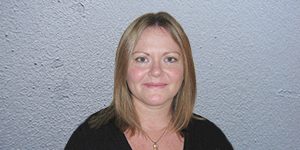CBT@Home webinar series
Treating young peoplewith OCD: using “OCD? Not me!” in your clinical practice
Dr Rebecca Anderson, Curtin University

This approx. 1h10min CBT@Home webinar was recorded in December 2022 and is the presentation of her address as the 2022 AACBT Mid-career award winner. AACBT members can view for free. Non-members may purchase here.
Do you want to treat youth OCD in just 4 sessions?
Learn how you can use the free “OCD? Not Me!” program to guide your evidence-based approach to adolescents with OCD and their families. (www.ocdnotme.com.au)
OCD is a mental health disorder that often onsets during adolescence, yet access to evidence-based exposure and response prevention (ERP) is often limited by factors such as geographical location, cost, stigma, and therapist availability and willingness to use ERP.
“OCD? Not Me” is the world’s first evidence based, fully automated program for young people with obsessive compulsive symptoms. This presentation will provide a brief overview of youth OCD, highlight the features of the eight-module online treatment program, and provide clinicians with information about how to integrate the program into their everyday clinical work. Outcomes from the program evaluations will also be highlighted, demonstrating the effectiveness of the program to date.
Biographical notes:
Dr Rebecca Anderson is the co-founder of “OCD? Not Me!” the world’s first fully automated treatment for youth OCD. Rebecca is a clinical psychologist working at Curtin University in Western Australia where she engages in clinical teaching, research and supervision. She is the Deputy Director of the clinical psychology postgraduate program and current Director of the Curtin Psychology Clinic which provides a specialised service for children, adolescents and adults with obsessive compulsive and related disorders (OCRDs).
Rebecca’s research has focussed on improving treatment access and outcomes for the OCRDs and anxiety disorders. She has authored a range of CBT clinician manuals, and four free, online CBT self-help programs aimed at improving access to evidence-based approaches for mental health disorders including body dysmorphic disorder, OCD, generalised anxiety disorder, and health anxiety/hypochondriasis.
Key Learning Objectives:
- An introduction to youth OCD and current treatment approaches
- An overview of the 8 stage “OCD? Not Me!” online program
- How therapists can integrate “OCD? Not Me!” in their clinical work with young people with OCD and their families
Select readings:
- Rees, C.S., Anderson, R.A., Kane, R.T., & Finlay-Jones, A.L. (2016). OCD treatment online: Preliminary results of the ‘OCD? Not Me!’ self-guided iCBT program for young people with OCD. JMIR Mental Health, 3(3):e29.
- Anderson, R., Rees, C., & Finlay-Jones, A. (2017). Internet-based cognitive-behavioural therapy for young people with obsessive-compulsive disorder: Lessons Learned. Journal of Obsessive Compulsive and Related Disorders, 15, 7-12.
- Rees, C., Anderson, R., & Finlay-Jones, A. (2015). OCD? Not Me! Protocol for the development and evaluation of a web-based self-guided treatment for paediatric obsessive-compulsive disorder. BMJ OPEN, 5, (4). 5:e007486.

